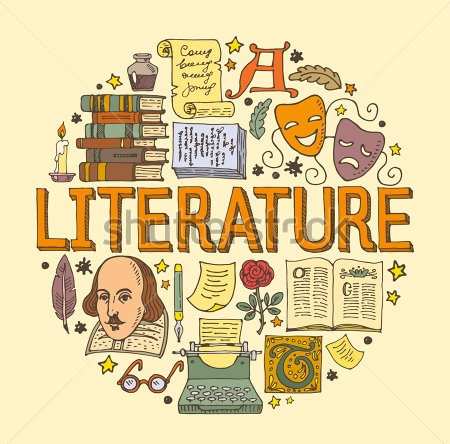Pir Imtiyaz
Literature as a Gateway to Self-Discovery
In the realm of literature, we find a profound avenue for self-discovery. From the vivid characters we meet on the pages of books to the eloquent narratives that resonate with our own lives, literature serves as a gateway to understanding ourselves better. For students, it offers a unique platform to delve into the intricate tapestry of human emotions and experiences.
As we navigate the tumultuous waters of adolescence, literature becomes a steadfast companion. It provides a safe space to explore our own identities, values, and aspirations. In the stories of others, we find reflections of our own struggles and triumphs. Literature encourages introspection, urging us to contemplate the choices we make, the beliefs we hold, and the dreams we dare to dream.
Through the lens of literature, we embark on a journey of self-discovery that spans beyond the confines of our own lives. We step into the shoes of characters who grapple with dilemmas similar to our own, and we witness their evolution as they confront their deepest fears and desires. This vicarious exploration allows us to gain a deeper understanding of our own humanity. Literature becomes a mirror that reflects not only our own faces but the intricate mosaic of human existence.
Cultivating Empathy through Literature
Empathy, the cornerstone of our social fabric, finds fertile ground in the world of literature. As students, we are introduced to characters from diverse backgrounds, cultures, and walks of life. Their stories open windows into worlds we might never have encountered otherwise. Through their eyes, we witness the beauty of our shared humanity and the uniqueness of individual experiences.
Literature teaches us to empathize with characters whose struggles and triumphs differ from our own. It imparts valuable lessons about the complexities of human existence. We learn that there are no one-size-fits-all solutions to life’s challenges, and that every individual’s journey is worthy of understanding and compassion.
The stories of literature broaden our horizons, enabling us to transcend our own perspectives and embrace the richness of diversity. They challenge our preconceived notions and biases, fostering a sense of empathy that extends far beyond the pages of a book. Through literature, we develop the ability to relate to others on a profound level, to walk in their shoes, and to appreciate the beauty of their unique narratives.
The Role of Literature in Education
Within the realm of education, literature occupies a cherished place. It is a cornerstone of our intellectual growth and a source of inspiration that fuels our love for learning. As students, we encounter literary works that span genres, time periods, and cultures. These works not only enhance our language and critical thinking skills but also provide us with a deeper understanding of the world we inhabit.
Literature challenges us to question, analyze, and interpret. It encourages us to explore complex themes, grapple with moral dilemmas, and unravel the intricacies of the human psyche. In the classroom, it sparks vibrant discussions, ignites creativity, and nurtures our ability to think critically.
As we engage with literature, we discover that it is not confined to the pages of books; it is a living, breathing entity that influences our perspectives and shapes our worldview. The lessons we glean from literature extend far beyond the classroom, guiding us in our interactions with the world and enriching our intellectual curiosity.
Reflection and Personal Growth
In the embrace of literature, we find a refuge for reflection and personal growth. The stories we encounter often mirror our own experiences, offering solace, guidance, and a sense of belonging. Through literature, we gain insights into the human condition, allowing us to navigate the labyrinth of our emotions and relationships.
The power of literature lies in its ability to illuminate the human experience with a profound authenticity. It invites us to confront our biases, challenge societal norms, and question the status quo. As students, we are encouraged to think critically about the world we inhabit, the values we hold, and the society we aspire to shape.
The act of reading becomes an introspective journey, one that encourages us to explore our own beliefs, values, and convictions. It challenges us to consider alternative perspectives and grapple with complex moral dilemmas. Through literature, we embark on a path of self-discovery that extends beyond the boundaries of our own lives.
The Power of Words
At the heart of literature lies the power of words. It is through language that authors weave the tapestries of their narratives, inviting readers to immerse themselves in the worlds they create. The eloquence of words captures the essence of human experiences, transcending time, place, and culture.
Through literature, we are transported to distant lands and bygone eras. We walk alongside characters as they navigate the trials and tribulations of life. We share in their joys, sorrows, and triumphs. It is through the power of words that literature has the capacity to touch our souls, ignite our imaginations, and awaken our deepest emotions.
Words have the extraordinary ability to bridge gaps, connect hearts, and inspire change. Literature harnesses this power to convey universal truths, challenge societal norms, and spark conversations that transcend generations. As students, we become stewards of this power, using words to express our thoughts, shape our perspectives, and contribute to the ever-evolving narrative of human existence.
Literature as a Tool for Change
Literature has a profound influence on society and can serve as a catalyst for change. It possesses the capacity to ignite social movements, challenge oppressive systems, and advocate for justice. Through thought-provoking narratives, literature addresses pressing issues such as injustice, discrimination, and inequality.
As students, we are exposed to literary works that confront societal norms and shed light on the struggles of marginalized communities. These narratives serve as a call to action, inspiring us to advocate for change and become agents of progress. Literature empowers us to raise our voices, question authority, and champion the values of justice and equality.
In the ever-evolving landscape of societal discourse, literature remains a powerful tool for advocacy and social change. It encourages us to engage critically with the world, challenge injustice, and envision a more equitable future. Through literature, we gain the insights and inspiration needed to address the complex issues of our time.
Conclusion
In the tapestry of human existence, literature weaves a thread that connects us all. It invites us to explore the depths of our humanity, to embrace diverse perspectives, and to embark on journeys of self-discovery and empathy. Through the pages of books, we navigate the complexities of our own lives, broaden our horizons, and challenge the boundaries of our understanding.
As students, we bear witness to the transformative power of literature. It is a force that guides us in our pursuit of self-discovery, nurtures our capacity for empathy, and fuels our intellectual growth. It invites us to reflect on the world we inhabit, question the status quo, and aspire to be catalysts for change.
In the words of great authors and the narratives they craft, we find echoes of our own stories, aspirations, and dreams. Literature is more than ink on paper; it is a mirror that reflects the human experience, a lantern that illuminates the path of self-discovery, and a beacon that guides us toward a future enriched by empathy, understanding, and change.
the author can be reached at pirimtiyaz43@gmail.com




